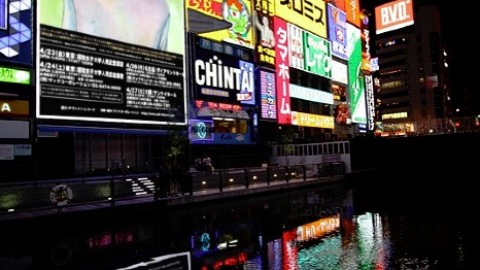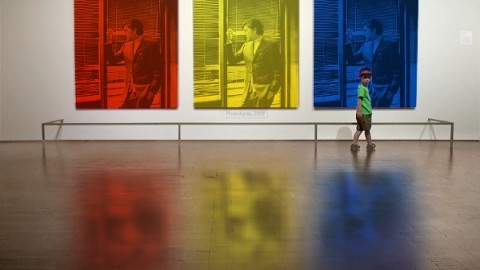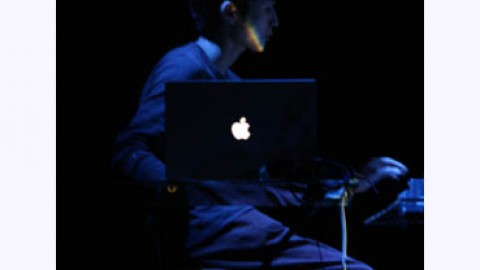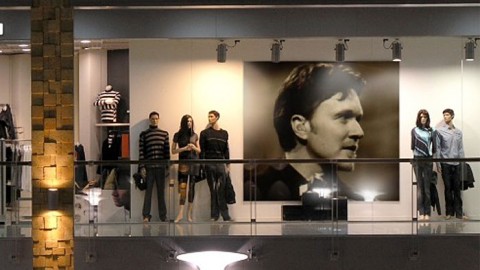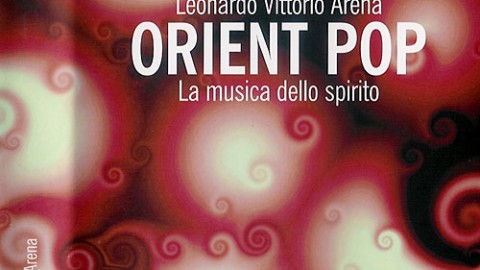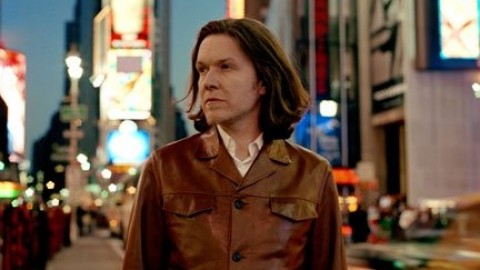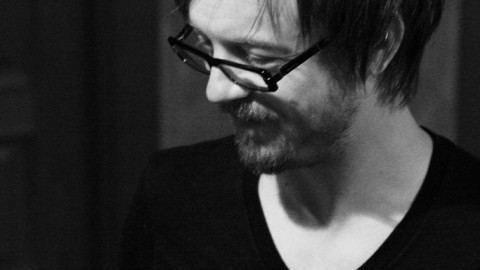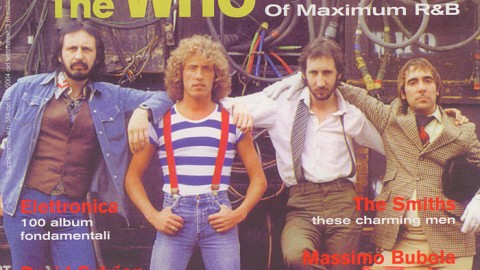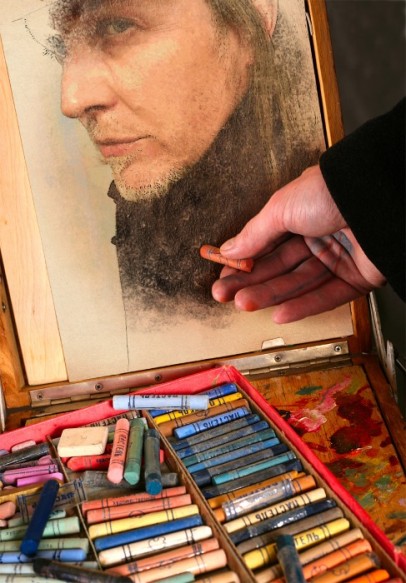
Trophies exclusive interview 2002 by G. Hillebrand. This is part 2.
Q&A02 2002 Gerrit Hillebrand (September 2002).
This is part 2 of the second exclusive QA session of trophies.org with David Sylvian. The questions were submitted by the readers and where possible combined. A big selection of about 80 from the 220 submitted questions have been answered by David. Quite a few questions are in fact referring to the same subject or overlap each other, therefor you can find more than one name of questionnaires at a particular question. There will be no correspondence about reasons for questions not being answered by David.
We’ll continue with part 2.“Having answered the following questions I feel I must point out that these are simply my person opinions born of experience. I dont profess to know more than I do. My ignorance outweighs my knowledge! If theres any value in what is expressed then it comes from my Guru not from me. All the mistakes and errors however are entirely my own.”
David Sylvian, september 2002.
Life
Recently it looks like you’re wholly devoted to India, musically and personally. What is attracting you so much? (question by Faran)
DS: Primarily this would be down to the influence of my guru(s), my love for them, their culture etc. I think Im right in saying that the Sanatana Dharma is one of the worlds oldest wisdom teachings/philosophies, if not the oldest. Truth is eternal. What applied then, applies now. For me this system of knowledge is the richest the world has to offer. It lies at the root of Hinduism and Buddhism, which makes it very close to my heart. It is un-dogmatic and all embracing. At the root of Indian culture is the life of the spirit. Their culture is imbued with this spirit, it is rooted in truth no matter the distortions it might go through before it reaches us. Its a complex culture and I enjoy unraveling it, growing more and more appreciative with an increasing understanding of its riches.
I wouldnt say that my work is wholly influenced by Indian culture although thereve been references to it obviously. Philosophically that statement might be true. Musically, there are so many diverse influences at work.
I’ve read of your interest in hinduism and buddhism. What kind of buddhist practice did you have and what led you to move away from a spiritual tradition devoid of gods to one that has many of them? (question by msfmsf)
DS: I was essentially drawn to the teachings of Zen as a result of my travels throughout the east although, increasingly, there was an influence from the local Tibetan community of which we were a part in Minneapolis. My practice was simple, based around meditation morning and night. I had no teacher, no lineage, I studied alone until the practice became too dry. I then sought out teachers. How and why I ended up at the feet of the teachers I did is a long story.
For me there is no dichotomy between the one and the many. At the end of both paths there is that which is devoid of form. The fullness or the emptiness, arent these simply different means of expressing the inexpressible? There is only one truth. There isnt one for Christians, one for Jews, one for Buddhists etc. There is one truth and we chose the path most suited to us to reach it, equipping us as it does with a greater degree of clarity, purpose, commitment and one pointedness, and love and compassion, lets not forget love and compassion, leading us to the goal of realisation. Mine combines something of that Buddhist influence garnered from years of practice and study, with the path of Bhakti yoga inspired by my Guru.
The songs and musical creations that, in your own words, ‘blow people’s hearts wide open’ are rooted – akin to the vast majority of Western art – in inner conflict, in a profound sense of individuality. Were you ever to succeed in the aim of utter surrender, surely that impetus would be gone? What might remain is devotional music, beautiful and moving in its own way, but wholly different in effect. Is this a path you would wholeheartedly welcome? (question by Silvija Davidson)
DS: Or to put it another way, am I a (western) artist first and foremost or a soul on the long road to realisation? If my heart were to be lifted of its burden in this lifetime and I could sing with pure, unadulterated devotion then of course I would embrace that path. I would embrace one of silence if need be. Im aware that if my work has any value right now it might be in that power to open the hearts of others, by increments of course, but this is a path I think of as being entirely suited to by current position in life (whatever that might be). Im happy to pursue this goal in my work for the rest of my life. Theres no internal struggle over what I feel I should be doing. I try to surrender to whatever is asked of me. I fail constantly of course but thats another story and all par for the course.
How has consciously embracing a more spiritually focussed life path changed your musical process? For example, has it brought to your work a different intention, or priority? (question by Pavi)
DS: Of course priorities do change as we go through life. Leading a more focused spiritual life has been a major component in my shifting priorities but at its heart I believe my motivation for making music remains close to what its been for the past 20 odd years. Thats because the impetus for much of my work has come from this odd philosophical/spiritual search. The music has been part of the process as well as a document of the findings, the fluctuations, the ups and downs of this non-linear course. The root motivation remains consistent as I planted myself in good fertile soil twenty years ago. The plant is hopefully maturing but the soil remains the same.
Do you think there will ever come a point in time when you will be totally happy with your inner life and if and when that time comes do you see yourself withdrawing from the music business completely? Is songwriting in itself a necessary therapy for you or is it just something that you love to do? (question by Simon Purdon, Dave)
DS: Songwriting is necessary for me. Its not what some would describe as a hobby. As disturbing, revealing, joyful, and painful a process it can be Im always drawn back to it. Feel somewhat at a lost without it. However, I try not to remain attached to it. I choose to be open to all possible scenarios.
Although its not asked directly in your question Simon, its often implied that, having found a focus in life complete happiness and inner peace might well be just around the corner. This isnt my experience. The spiritual path can be both gratifying and terrifying. Theres immense suffering at the burning of the ego, loneliness, joy, and that treasure of the spiritual experience, bliss. Its simply that its all viewed from a slightly different perspective. All grist for the mill. Every experience becomes a gift. An opportunity to learn and benefit from the resulting insights. Im not even sure that one should aspire to happiness as such. Peace, equanimity, altruism, service, discrimination.maybe by focusing on these and other essentials we ultimately find ourselves in a state of permanent bliss, inner equilibrium, or pure joy.
Should I be fortunate enough to reach that state in this lifetime it doesnt necessarily follow that Id withdraw from singing or performing. There might be so much more to offer should that be the case. I simply dont have an answer for you at present
Although you’ve done a good job autodidactically; do you regret not having gone the university route in life? Have you ever wondered how your life would have unfolded if you had not been successful as a musician/artist? Do you have any regrets with your Japan days, and if you could do it all again what would you change? (question by Lee Wilson, Michelle Lincoln, Vickey Walker)
DS: Not too happy pondering the hypotheticals. Sure, university couldve been amazing. There are terrific holes in my self education. While I now worry less about such things Ive always been (sometimes painfully) aware of their presence. There are pieces of the puzzle Im missing still. But theres knowledge and theres wisdom. I believe wisdom is something you cant be taught but something which you acquire. I guess thats been my focus for the past decade or more which alleviates the burden of a poor education somewhat.
What would I change? Everything and nothing!
Where do you see yourself both musically and personally in the next 10 years and is there anything that you have not yet done in your life that you would like to do? (question by Saffron Flower)
DS: Hi Saffron. Im unable to look that far ahead in time. I make vague, short-term goals and plans for the coming months but nothing really beyond that. I hold onto a wealth of possible futures but am not ultimately attached to any of them. My frustration resides in the speed with which I work. There are many projects I would like to pursue but with only so much time available I, like most people, prioritise which often leave avenues of interest relatively undiscovered or poorly explored. Then there are the external circumstances which put a hold on ones ability to work. Ive been playing the waiting game since 99. Its been difficult not to feel overwhelmed by the frustrations that arise as a result of the scale of these obstacles.
Is there anything that I have not yet done in life that I would like to do? God yes. Many things..swim with dolphins, bath in the ganges, sky dive, ride camels in the desert at sunset with my children, and so onthen there are the greater, personal goals which I think Ill keep to myself for now.
As individuals we relate to each other and to the outside pressures and limitations of this our physi-cal world. In developing this idea it has been suggested that ‘God’ is a phenomena which is every-thing that is either inately outside of ourselves or otherwise outside of our immediate control or influence. To what extent do you think it is it fair to say that your music has been an exploration of this relationship, or symbiosis, and is this a theme you intend to develop to characterise future projects? (question by Darren Peake)
DS: I hope I understand your question correctly Darren. For me the concept of inside and outside has no significance beyond the egos sense of self and other. In reality there is no inner and outer. The limited consciousness that seems to extend only so far as our physical boundaries, that identifies with the little I, is an illusion. Similarly, the notion of self determination, of individual will, is also something of an illusion. If we will ourselves to move in the direction the current of the stream naturally takes, we might feel that we are in control of our lives, their circumstances, and environment. Push against that flow however and we might find that theres only so much one is able to achieve and as a consequence there might be an increase in hardship and suffering. At these times we can say that God is outside of ourselves as the divine will is seemingly opposed to our own. If we recognise this fact and, if you will, realign ourselves to that divine will, have the courage to let go of the reins, then we find that there is in fact a divine consciousness at work which were able to tap into. Essentially, that consciousness is part and parcel of who we are. No separation. No other. In the same way that ones Guru is essentially a physical manifestation of ones own higher self. There is only ONE you see? Viewing the world in any other light is an aberration of the human ego. But this is something we have to come to an understanding of through personal experience. It cannot be taught. We might grasp the concept intellectually but until we experience it for ourselves it remains a concept, a goal to aspire to. In the meantime we get to enact the role of the lover to the beloved.
What I believe takes enormous courage and constant re-affirmation is this act of surrender to the divine will. I personally cannot think of a more difficult, but equally, more fulfilling path to take. The act of surrender becomes a living, breathing, (as in, with every breath) meditation. It takes courage and determination to avoid running head long in search of pleasures, happiness, joy, and away from suffering in all its myriad forms. But as one reaps the rewards of the chosen path one begins to develop an intimacy with the divine. Theres no intermediary. Direct experience of the divine, of ones own divinity.
What is the most ridiculous rumour about yourself you have ever heard? (question by Simon Basten)
DS: Oh I dont know Simon, I stopped listening so long ago. But lets see, the most recent that comes to mind was reported about 7 years back. I was told of a biography of Scott Walker in which Scott and I were supposed to be hanging out together in the offices of Virgin Records which made me laugh as two less likely characters hanging out at corporate headquarters I could not imagine. And the thought of Scott hanging out only becomes more incongruous the more you know of him (and no, Scott and I have never hung together nor am I professing to know him). I was supposed to be taking lessons in how to be a mysterious, reclusive artist from Scott. Where do they get this stuff from?
David, before anything I would like to extend my greatest appreciation and gratitude for the work that you have produced over the years. For, in my humble opinion, I believe that you have captured through words and music a deep and emotive reverence for both the experiences that life presents us with, as well as the musical experience itself.
My question for you concerns that of loss – but more specifically, loss in the context of relationships and how One can best cope with this. Although I personally cannot speak for everyone, I do believe that it is safe to say that when we as human beings sense having lossed a very good friend or an influential partner, due to a falling-out of sorts, we go through an intense and usually long period of deep sadness and disappointment.
While looking back at the causes for the falling-out or the falling-out itself, we may either choose to point the finger at the other person or blame Oneself, but whatever it may be we seldomly take an indifferent view toward the whole experience; moreover, there is the possibility that our attitude towards being involved deeply in relationships again may change solely in detrimental fashion.
My question for you then, David – now that you have lived through many of life’s experiences and found a way of living which allows you to find and contemplate the positive aspects of these experi-ences – is, in what manner can One best come to terms with the disappointments of losing a close friend or companion in order to allow Oneself to open up to accepting new relationships, and conse-quently experiences, into One’s life? (question by Fernando Garrido)
DS: If the relationship was a profound one, and I take it from your comments that it was, then I feel we have to allow ourselves a period of mourning. Mourning for the loss of something beautiful and profound (if the relationship was a long standing one then its possible that the soul must also go through a healing process as partners souls can begin to merge which increases the pain of separation enormously). Blame is something best dropped as it wont help the process at all. Own up to all of your feelings, recognise them and try to move on. Overwhelming anger, sadness, loneliness. recognise them, feel them, embrace them, move on. Clich: time will heal the wound, is true nonetheless. Itll put an end to the bitterness. Try remembering to practice forgiveness. It’s a powerful, powerful act which you will find brings enormous benefits and release. When you find yourself chewing over the facts of the past remember FORGIVENESS.feel it in your heartthis practice alone can release you from the clutches of negativity.
Did the influence of the teachings of ‘Mystic’ G. I. Gurdjieff over Robert Fripp and his work, subse-quently influence you, your music or your beliefs? Is it something that Robert and you talked about, or did it find expression only through the recordings and live shows? Are you still interested in the Gurd-jieff-Ouspensky system? (question by Lewis Boadle, Avv. Enrico Visciano)
DS: I was interested in, and had read a fair amount by, and about, Gurdjiieff. Before meeting Robert I knew of Roberts connection with the Bennetts prior to meeting him. I believe, in fact, there was more time spent discussing philosophical questions and questions of inquiry related to the above on those first sessions (for GTE) than recording work. Ultimately Robert and I follow different paths but we connected in a meaningful way on matters regarding the underlying principles that govern life and work.
I am still interested in the Gurdjieff-Ouspensky system but dont actively participate in The Work although there are obviously principles, disciplines, embraced by, or incorporated onto, The Work that continue to play significant roles in my own practice.
I hope thats makes sense to you.
Your music seem akin to the visual arts. There have been many references to Joseph Beuys, Max Ernst, Cocteau, Mark Rothko, and more recently Anish Kapoor and Charles Lindsay. I was wonder-ing if you can expand your thoughts on the visual arts, if you believe in the theraputic nature of the arts? Can a painting or sculpture have a profound effect on an individual. (question by Paul Robles)
DS: The simple answer to all the above is yes. Personal experience tells me that all forms of art (and not exclusively that which is defined as high art) have the power and potential to transform. I believe its possible for someone to have a transcendent experience in the presence of a painting or sculpture in much the same way as she might through a direct experience of nature. Some consider art to be an imitation of nature. I tend to believe that at its best it harnesses the same forces. Music rises above the disciplines as the greatest of all the arts because it is pure vibration, entering into us, altering and affecting us in such profound ways as a result. If the mind is unguarded music will go directly to the heart while the intellect (the divisive mind) is caught napping. It is difficult for other mediums to compete with this interloper but under the right conditions it most certainly can and does.
Ive written on this subject in the past but have begun to mistrust many of the conclusions Id come to regarding the creative process. I dont believe the intellect comes close to comprehending the process of creation. This is no bad thing.
What are you currently reading? Have you read 100 Years of Solitude and what did you think of it? (question by Cliff Stammers)
DS: Im currently reading:
Equals by Adam Phillips
Daughter of Fire by Irina Tweedie
My name id Red by Orhan Pamuk
Challenging Art: Artforum 62-74 by Amy Newman.
I think Ive been the proud owner of a copy of solitude for 15 years or more. It resides in the must get to one of these days pile of books.
How do you manage those features of “the world” as you experience it off the stage as David Sylvian, “the world” on the stage, and “the world” of your personal life? Is there an integrating or binding feature that connects all these elements? I am thinking of the Sufi maxim “in this world but not of it.” (question by Steven Leak)
DS: The temptations that surround a performer or celebrity (Im not sure either of those terms apply to me) are greater it seems to me than those that choose not to live under the spotlight (however dim the wattage!). This makes the challenge of staying focused all the greater and therefore, ultimately, more rewarding. The material world is illusion, is maya. On one level that is clearer looking down from the stage (our commonality, our unity, never seems clearer to me than from that odd, privileged perspective). On the other hand the ego may become conceited, fat and bloated (read blind) being on the receiving end of so much attention. Its a balancing act. For me there is ultimately (progressively) little difference between the worlds you describe. I try to walk the same path on them all.
Having a family entails some financial responsibility. How does your need to make money affect your work?
DS: Other than the occasional, prolonged, anxiety attack I hope it doesnt affect the work at all. I have enormous faith that carries me through situations that at first glance appear financially ruinous. Whatever happens I put down to my Gurus will. I do my best to surrender to it.
How important is the business side of your music, to you? With a very loyal fan base, would it not make sense, to distribute your records, yourself (own label) or through the Internet? (questions by Sarah Bee and beat paul)
Staying in the business for as long as I have Ive obviously had to have been deeply involved in all of my business affairs. I have a fair disrespect for the industry. Ill not go into that too deeply other than to say that it is an industry built upon common, immoral, exploitative practices. The artist stands on the bottom rung of the ladder of consideration and respect. It is a world Ive necessarily inhabited in order to be heard.
I intend to distribute recordings by a variety of means in future. Some will be available exclusively via mail order from my own label others will be published, distributed by other labels, other companies.
What do your children think of your music (question by B. Hamill)
DS: I dont play my music in the car or around the house unless I’m checking a mix. At those times I try to be alone. Ingrid is guilty of playing my music on long journeys with the children in tow. I can only imagine their relative disinterest at this stage although they do seem to have enjoyed the concerts theyve attended. I think they prefer Ingrids work to my own though.
What is your response to the events of 9-11 and the state of affairs of the world politically and spiri-tually? Are you sanguine as we head into the future or somewhat suspect of those who ostensibly have control over the political arena? I already feel akin to your spirit through your music but wonder if within your day to day life you consider an untimely exit for us all? As a father I cannot help to think of these matters from time to time. What are your thoughts? (question by Cameron Mercer)
DS: The events themselves were obviously horrific. To end ones life by destroying so many others is the absolute antithesis of all that most of us strive for. Youve only to take a look at todays entertainment and news to see that weve lost sight of the most basic of human values. The onus is on us to redirect the values of the cultures in which we live. Lulled by luxury or numbed by poverty we all seem to want the same things in the west. There is less a desire to over turn the prevailing system of values than simply to acquire what it appears everyone else wants or has. The mud and blood of the physical without acknowledgment or fulfillment of the spiritual. There are answers but weve got to be looking in the right place to ask the relevant questions.
Fear should not push us back to fundamentalist values and beliefs as is so often the case in times like these. You can almost feel the minds narrowing with fear and anxiety as people close ranks as a result of the attacks and resulting propaganda.
The best way to respond to such an act it seems to me is to step up the kinds of contributions we can make in our own lives of a truly altruistic nature. To respond by giving, by improving the lives of as many people as we are able before our time is up.
Prayer and meditation can have enormous impact especially when carried out en mass.
Politically speaking, I was also horrified by the response to the tragedy. The dialectics of good and evil, the table thumping propaganda, which still shows no signs of abating. In fact Ive never been subject to so much unequivocal propaganda in my life (the unbalanced reporting from the US media does nothing to remedy this). I continue to be deeply ashamed of the US response to world concerns and events. Bushs position on the US in relation to its role in the world is progressively isolationist. He once made the promise that should he become President the world would be a more peaceful place. An astoundingly arrogant statement to make under any circumstances. On the contrary, in my opinion. this one man and his polices have begun to do enormous damage to the stability and peace of the world.
There are many forms of terrorism in the world. Americas hands are by no means clean in this respect. We have exploited other cultures, other resources to sustain our own interests and economy. If thousands die of hunger because of our nations policies are we not to blame? If atrocities fall inside of the law does that make them morally acceptable? Isnt it impossible to speak unequivocally of good and evil in the context of world politics today?
We are world citizens first and foremost. I wish we, and those governing our nations, wouldnt lose sight of this fact. Can we not put an end to the literal and figuratively divisive flag waving and speak in a language that is inclusive, compassionate, that speaks of our commonalties and shared responsibilities?
On another level of perception entirely these events are all part of the dynamics of cause and effect. Ive heard it said that it isnt just individuals that have accrued karma through past actions but nations also share in a collective debt. Again, this should prevent us from taking actions, the consequences of which we may have to pay dearly for.
Past
What was the first song you ever wrote? (question by Paul Rymer)
DS: I have no recollection Im afraid.
David, what are your recollections of Simon Jeffes? When in ’95, after a Penguin Cafe Orchestra gig, he told me of him having collaborated on a piece of yours called, I think, “Saints and Sheep” (can you shed more light on this?), I was not surprised – I’ve always sensed this underlying link between your poetics, which is I believe due to the ultimately ‘utopian’ nature of both your musics. I actually feel with Dead Bees on a Cake you got even nearer to Simon’s sense of subtleness and self-effacing innocence through economy of means: do you agree? (question by Tonino)
DS: I first met Simon back in 81 I believe, when he dropped in to visit us while we were recording Tin Drum. The connection of course being Steve Nye who was an original member of the PCO. Simon was developing an increasing interest in synthesisers and was particularly curious about the Prophet 5 which, if I recall correctly, he wanted to compose on. I ended up loaning him my spare P5 for a few months. He played on the Bamboo sessions with Ryu and myself, although his contribution didnt make the final mix. We met up again in Berlin when I was recording B. Trees. While we were down in the dark recesses of the basement struggling with out dated equipment and poor wiring, he was upstairs working with far more modern technology in very comfortable surroundings. Hed come down to gloat at our predicament. We attempted to collaborate once more on GTE. He supplied a string arrangement for wave (originally titled Saints and Sheep it had an entirely different lyric and vocal melody). There was even talk of a vocal work for the PCO which hed been considering me for.
He invited Yuka Fujii and I to a performance by the Royal Ballet Co. Dances choreographed around PCOs music. We sat together. He was in great humor, obviously delighted and proud by this odd turn of events. That was the last time we saw one another. Simons was always a gentle presence although that was accompanied I gather by a strong will and determination (youd often hear grumbles about this from the ranks of the PCO). He was smart with a sharp wit. There was an enviable makeshift quality about his early work with the PCO. His studio where many recordings were made had a homely quality to it. How he managed to squeeze all of the members of the band into that tiny space I dont know but it mustve felt intimate in the same way that those gatherings of musicians in the pubs of Ireland sometimes feel. Core groups of well trained musicians reaching beyond themselves with humor and invention. He appeared to be constantly excited by the researching of new forms, creating hybrids, making new connections. At least thats the impression that stays with me. I was after all an acquaintance rather than a close friend so these are just surface impressions.
At the beginning of your careers you and your brother both decided to change your names. Was this an attempt to create a “public” persona distinct from your private lives and if so does it continue to serve that function almost 30 years later? After all, the name Sylvian was synonymous with Japan an ethos, image and music you later chose to discard or leave behind. But the name remained? (question by “ps”, Keith)
DS: The name change wasnt for commercial purposes only. It was also a very private need that generated the change. Sylvian is my name now, married to it for better or worse. I have lived with this name longer than any other during this lifetime. This is significant I think. At least as significant as a secular name can be. Ive toyed with changing it to another for the sake of further privacy and anonymity (or just for the sake of it) but have not yet done so. I suspect I will do so one of these days if only for the sake of experimentation.
Do you think that much of your solo success owed itself to the subliminal link between Sylvian and Japan or would David Batt have been as successful?
DS: I think the connection between Japan and Sylvian is obvious and doesnt need overstating.
The theory goes that you aquired your surname from Sylvain Sylvain from the New York Dolls but I believe I have found the true source of your unusual surname. Did you pinch the name from the line “crashing out with Sylvian” from Drive In Saturday by David Bowie? Please correct me if I am (question by “uncle Bob”) wrong. Ps. What is your favourite Bowie album?
DS: Hello Uncle. Unless theres something going down on the subconscious level for which I cannot account, wrong..on both counts
Favorite Bowie album? Gosh, Its been awhile..Heroes?
How has your relationship with your appearance changed over the years? It was obviously of great interest to you for quite along time. At that particular time, (Japan) it was a big part of what drew me to your work-The contrast between the ‘superficial’, ‘Glam’ image and the depth of the records. And I’ve been listening ever since, I might add. But it seems to me that you’ve had a ‘downer’ on your physical appearance and the subsequent attention it brought you, for some time. A characteristic I believe you share with Scott Walker, whereas someone like David Bowie and Bryan Ferry seem to enjoy working with their appearance to this day, whilst still producing valuable work, in my opinion. If being seen as generally ‘attractive’ was/is a problem to you, why do you think this is? (question by Gaudette)
DS: The primary problem isnt, as I see it, to do with personal physical appearance. It initially related to an innate shyness that, after all these years, still remains an issue for me. Hiding behind one persona or another was one way of ducking this issue but once Id decided that was not a game I wished any longer to play I stepped back from the public eye. Having fooled around with different images, personas, call them what you will, I knew how powerful but ultimately distracting they were for both public and perpetrator alike (on a personal level it felt ludicrous expending energy propagating and maintaining an illusion). Actually its a game that is relatively easy to play and exploit if it interests, excites, inspires you but I wanted to try a different route. Ive relaxed my attitudes regarding this issue in recent years and take the matter less seriously than before but Ive still no desire to join in the playful, artful, entertaining, deceitful, exploitative game of image creation.
I believe this to be relevant to the work in that ones attitude to one’s appearance also shows an atti-tude to aesthetics and beauty in general.
DS: This argument has many different perspectives to it and calls for a dialogueforgive me Gaudette, I prefer not to dwell on the subject of my own appearance here as in life.
David, the song that first exposed me to your music was the beautiful “Taking Islands in Africa” from the “Gentlemen Take Polaroids” album. Being perhaps the first of much fruitful collaboration works with Ryuichi Sakamoto as well as the beginning of a long lasting friendship together, can you recall any memorable moments from those sessions? Have you ever considered doing an album or a one-off concert with Ryuichi? (questions by Ray, Mark Williams, Tea Leaves)
DS: I vividly recall Ryuichi joining our session late one evening in Studio 1 of George Martins Air Studios. He brought with him a Prophet 5 synthersiser and proceeded to lay down track after track after track until the entire piece was more or less completed. It was a bravado performance. All that was missing was the tux with tails! Beautiful!
I took the track home with me that evening, returning next morning with lyric and melody completed. By the time Ryuichi appeared at the studio later that day (he was recording B2-Unit in studio 3) the track was finished.
We did consider recording an album together back in 84 but the timing was wrong for the both of us. The performance idea is, in a sense, a more likely proposition at this point. But who knows? Ryu and I have a habit of never referring to future work together outside of whatever it is were currently working on. It feels natural to continue in this vein with each new project potentially being the last.
Has there been any discussion regarding the possible release of Japan live material held in the BBC archives? (question by “ps”)
DS: Not that Im aware of.
I have always wondered why Japan’s Oil on Canvas album featured both live and studio instrumen-tal pieces. It seems a strange idea, but one which works well. How did that decision come about? (question by Steve Horne)
DS: Its a little hard to remember the details now. Maybe it was a way for the four of us to remain interested in a project that held relatively little interest for us. I do remember writing the opening piece prior to starting the album. That got the ball rolling and initiated the idea of adding musical bookends or interludes that went someway towards describing the emotions behind that last tour, the travel and performances themselves, the retiring of the band, reflections of the past, the yawning void of tomorrow
What do you consider to be your biggest achievement musically? (question by Paul Jeff)
DS: Remaining a non-musician after working within the field of music for over 25 years?
Is it true you are no longer signed to the Warner Bros subsidy label and can you confirm the rumour that Virgin hold a live copy of one of your Slowfire concerts & wanted tracks to be put on E&N. (question by “Josh”)
DS: I’m no longer signed to Warners. Virgin is not in possession of any live recordings from the Slow Fire tour.
Some collected questions about the internet: Do you, personally, support mp3 sharing on the internet? I think (and so do many artists without a label) this isn’t what harming the record industry. This is how I’ve discovered your music and many other great ones too, which I might never have known otherwise ‘cos most people only like/advertise pop here. Many people I know also agree that even if they have mp3s they would still buy CDs of the music/artists they like, and many of us are even willing to pay for what we get from the net, there’re just so many songs out there we can never buy from shops any more… so we do believe that real good music will always survive. i really would like to know your opinion about this, David. and also, would you consider to support music-sharing on the net? (questions by Jul, Manjit Ray)
DS: I dont think its necessary to feel opposed or in favor of the above. There is an (r)evolution taking place and like many others I am interested in the current technological developments and their application in this context and just where they might lead us. In the long run itll open up a world of options and possibilities to artists and consumers alike. In the meantime we have to brave the current climate which is difficult for so many artists. I believe youre right in your assumption that it isnt the downloads that are killing the music industry. The industry really doesnt need any assistance from the consumers in bringing the market to its knees. Its hard to feel sympathy for those giant corporations currently running scared. For the most part theyve been ill informed about the nature of the work theyve published and its potential market. The music business is notorious for its absence of scruples. It has been run on an incredibly exploitative, entirely immoral basis. It always held the upper hand, the artists themselves in a strangle hold. The music industry maintained the status quo for as long as it possibly could. Now it appears to be coming apart at the seams. Vive la revolution!
Its likely that the other comments you make are true but we wont know for certain until the dust settles. But theres no turning back is there?
Have you ever or would you consider making some of your future material available for downloading through the Internet?
DS: I would.
There seems to be plenty of material, which we have heard that may never see the light of day and, I guess one of the reasons is for constraints on the financial budgets for promoting/distribution costs etc. But through the Internet perhaps these costs would reduce dramatically!
DS: This is true.
Why have you never collaborated with Brian Eno (though there were rumours of Eno’s involvement in the early recordings of Dead Bees)? I read that you were a big fan of his work, and indeed you have recorded with many of his collaborators, but not the man himself… (question by Paul Sandford, Colin Henderson).
DS: The question of a collaboration with Eno wouldve been pertinent in relation to the group Japan when his potential involvement as producer wouldve truly made a qualitative difference both sonically and compositionally. I dont recall asking Eno to produce us at any point although his musical influence was never in question. I do remember asking Robert Fripp to take control at the helm on one occasion. For Quiet Life I believe it was. As far as the solo works concerned Ive never seriously entertained the thought of a name producer.
I dont tend to draw up a list of people Id like to work with and then create the work around their involvement. Its the work itself that cries out for the collaboration to take place (or, on occasion, Im on the receiving end of an offer to collaborate). There are really few exceptions to that rule. Ultimately this question could be applied to many whose work has influenced me in some way but, for whatever reason, a more direct collaboration has yet to take place.
BBC2’s Later with Jools Holland is an excellent showcase for world music. Have you ever been asked to appear on a mainstream music program ? Do you ever feel like promoting you music to a wider audience in this way ? I know so may people who on hearding your later work and both amazed at how great it is, and amazed that your still an active musician! (question by Rob James)
DS: I occasionally get asked to appear on such programs. For one reason or another they rarely seem to come off. Much of it has to do with the fact that unless Im touring I have no band as such. Therefore the offer has to coincide with a tour and tour dates which, as Im sure you understand, doesnt leave much room for opportunity.
Do you ever look at this web site and if so what are your thoughts onit? In my opinion this site is the most comprehensive and concise study of your work and an invaluable source of updates etc. Have you or would you ever consider putting together your own site? (question by Simon Purdon)
DS: I think Gerrit provides a wonderful service with his site. If I were to produce my own site it wouldnt compete with Trophies as it would not be a reference based site.
Can you explain the process of composing a piece of music from the first two-chord songs (we all seem to play in our adolescence) to the next harmonical step (leading up to a fully-fledged harmonic sense of structure)? Do you have the idea fully formed in your head before you pick up a guitar or keyboard or does the whole piece evolve gradually? For instance at what stage do you decide on the final intrumentation and musicians and when do you decide whether a piece is an instrumental or requires vocals? (question by Simon Barnes, Kitaj, Pieter moermans)
DS: Well Im still composing two chord songs!
As my Guru has said in relation to the teacher, devotee relationship, you cant fill a glass that is already full. The same applies I believe with writing. Pre-planning goes a long way towards preparing for that moment of inspiration but once youre on keep the intellect out of the picture and remain entirely open to what is coming in.
Overall pictures tend to come with the initial outpouring. Theres more often than not an idea of the instrumentation. But more importantly theres an energy, spirit, atmosphere, set of emotions call it what you will, waiting to be communicated. Having tapped into that youll likely know what is needed to translate it into form. Ultimately its a mysterious process that it doesnt do well to try and communicate. Jump in and start swimming.
How much does technology enhance/interfere with the process of making music? (question by Kevin J. O’Conner)
DS: No doubt about it, technology can be guilty of both enhancing and interfering. It you rely exclusively on technology youre going to constantly find your patience tested in one way or another. The worst case scenario tends to be related to the quick, unmitigated, transference of ideas. From inspiration to action. If you have to pause to turn on 20 pieces of machinery first, forget it. All this left brain activity is in direct opposition to what youre trying to achieve. The idea is to give yourself a lo fi means of making notes (acoustic instrument, pencil and paper) and to become so familiar with the technology you do use that the working of it becomes about as intuitive as pencil to paper (better to work with older technology that you know very well than constantly up grading to the new).
Technology can potentially open up new ways of listening, of composing, offering possibilities never before available to you. It is a wonderful tool when harnessed to individual needs.
Now have you ever thought to get involve yourself on writing soundtracks? Or any movies ever inspired you so that you’ve wished to re-write a related personal composition? As obvious I refer to the recent semi-improvised live film soundtrack performance Kinoapparatom by Steve Jansen and Claudio Chianura. (questions by Anny, Godot)
DS: Im more open to composing for film now than in the past. However, Im far more interested in pursuing projects of my own design.
Have you ever seen K. Kieslowski’s films, if so what is your favourite?
DS: I really love Blue and the Decalog.
Are you aware of your influence on ‘younger’ artists? Do they send their work to you? If so, can you name some that have touched you? Who do you consider your peers these days? (question by Ricky)
DS: As I’m not listening for my influence when hearing the work of other artists it doesnt tend to register although, there have been notable exceptions. Occasionally an artist sends their work to me but more often not.
My peers? Im sorry Ricky I cant say I really think in such a manner about art and artists.
Let’s turn the tables for a moment: What does your music mean to you? (question by Kevin J. O’Conner)
DS: Oh, I think the content speaks for itself, the making of which is part of an important process or cycle that gives life meaning, focus. It’s an opportunity to learn, grow, develop, like no other. And music, isnt it the most powerfully moving of all the arts? How much more so then to perform it?

